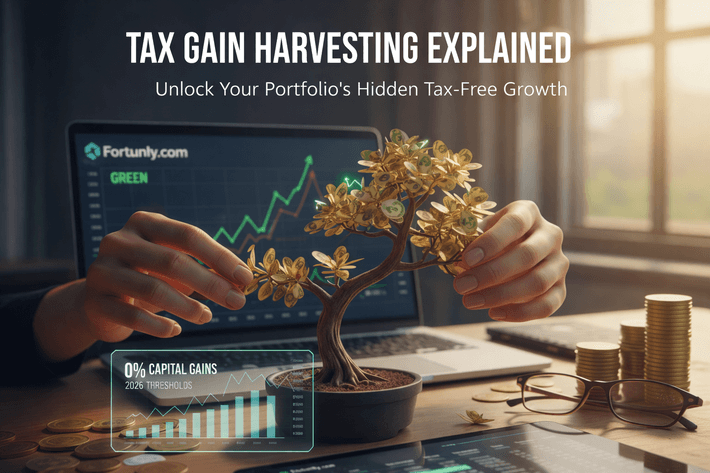Investing vs. Speculation: Key Differences
The finance world is full of jargon and terminology that can be confusing even for those not totally unfamiliar with the field. Two of the most commonly confused concepts are investing and speculating.
Let’s start by defining certain key terms before we proceed with the comparison.
Investing Explained
The act of investing involves purchasing assets with an expectation that their value will increase over time, or that the acquisition will consistently generate income. An investment strategy covers several years, or even longer, as long-term growth is the end goal of such purchases.
An investor may expect their assets to generate profit through interest or capital appreciation.
The most common investment financial transaction will be purchasing stocks, bonds, annuities, and ETFs.
Real estate is also one of the most stable ways to earn regular profits through renting. Investment strategies targeting the real estate market are also popular due to the assets’ tendency to grow their intrinsic value simply due to market demands.
Investors with enough capital can also join mutual funds. Certain private companies offer mutual funds as a way for multiple investors to pool their money so they can invest in expensive diverse securities or diversify their investment portfolios with greater ease and lower risk involved - provided the fund manager is reliable.
There are, of course, other ways people can grow their investment portfolios. For example, art pieces, antiques, or other collectibles are much more stable investment opportunities than hedge funds.
The value of artifacts is practically sure to multiply over the years, which is the crucial difference here, but also why they’re such exciting assets, especially if an asset or collection already has a history of becoming more expensive.
Speculation Explained
At a glance, speculation might seem identical to investing. You need to purchase an asset to begin, and your ultimate goal is making profit. But the key difference is time.
Speculative investments aren’t meant to be long term. Instead, they’re usually made as a way to take advantage of a specific trend, a sudden market shift, or simply as a high-risk short-term investment.
By their nature, speculators make risky bets, but speculative trade decisions are usually grounded in experience with previous market movements and an enormous risk tolerance.
To better explain the complex nature of speculating, we’ll look at some of the most common assets and how speculators form their strategies around them.
Currencies
Buying a currency in the hopes it will increase in value is a widespread speculation investment. You can purchase a foreign currency in hopes it’ll grow compared to others.
Similarly, speculators tend to engage in crypto trading on popular exchanges to take advantage of sharp changes in the volatile crypto market.
Commodities
Precious metals and agricultural goods like gold, oil, or corn are popular speculative asset categories, as they tend to get a lot of traction due to various industries that depend on them.
For example, the price of gold goes up in times of economic crisis, and oil skyrockets in price whenever there are supply-chain issues.
Short Selling
This is when you sell a security - such as a stock or bond - that you don't own, and hope to buy it back at a lower price so you can pocket the difference.
Short-selling is considered very risky, as there's no guarantee the cost of the security will go down, especially in a volatile stock market.
Futures Contracts
Futures are intrinsically speculative investments, as they represent sales made upon an agreement that the trade will happen at a predetermined time and date, but also at a price both parties agree upon firsthand.
When the contract expires, the buyer has to make a purchase. By then, the initial purchase price might be comparatively low and, therefore, profitable. Still, it could also devalue so much that the speculator loses a significant amount of money.
Options
It’s a contract for purchasing or selling the underlying asset at a specified price. Options contracts also contain a date of expiration, but it doesn’t pose as an obligation, hence its name - it’s optional.
Key Differences Between Investing and Speculating
Now that we've looked at the definitions of both investing and making a speculative bet, let's take a closer look at some of the key differences between the two:
Purpose - The main difference between these two activities is their purpose. Investors typically seek to generate long-term returns by putting their money into assets they believe will appreciate over time. On the other hand, speculators usually seek to generate quick profits by taking advantage of short-term price movements.
Risk - Another key difference is the amount of risk involved. Investing generally involves less risk than speculation. That's because investors tend to invest in well-established assets belonging to companies with a history of profitability, while speculators often invest in more volatile assets such as commodities or futures contracts.
Luckily, the Securities and Exchange Commission (SEC) ensures that risk is mitigated by penalizing insider traders and those causing high volatility.
Time Horizon - The time frame of an investment is another important distinction. Investors typically have a long-term horizon, while the speculation investment objective is to have a quick turnaround, without having to wait too long for the profits to arrive.
Funding - Investors typically use their own money, or they’re part of mutual funds, while the nature of speculation means that speculators usually work with borrowed funds.
Investor Attitude - Generally speaking, investors are more cautious when choosing businesses and assets they’ll be putting their money in. Unlike with a long-term investment decision, speculators’ attitudes could be considered reckless and even aggressive, even when we take into account the technical analysis speculators employ before making a speculative investment.
The Risks of Investing
While investing always involves some risk, there are several ways to minimize this. These include diversifying your portfolio on the stock market, investing in other financial assets with a long history of appreciation, and working with industry experts - i.e., employing a financial advisor.
Market risk is the biggest determiner: This is the risk that the overall market will decline, which would likely cause the value of your investment to go down as well. Investing means opting for assets that have proven relatively immune to these gross movements in stock prices, while speculative bets count on them.
Another risk to consider is credit risk, meaning that the counterparty to your investment could default on its obligations. If you're investing in a bond, the credit risk is the risk that the issuer will not be able to make the interest payments as promised. This risk is minimized by investing in high-quality bonds from companies with a strong credit rating.
Finally, political risk is something to be aware of. Political events can cause the value of your investment to go down, so investing in foreign stock always borders on speculative territory.
The Risks of Speculation
To avoid losing money, speculative assets should only comprise a small percentage of your overall portfolio. Even if your speculation does not pan out, your losses will be kept in check. Of course, avoiding using funds from your savings account is the way to go.
Margin trading is another form of speculation that can be very risky. This is because you're using leverage, which means you're effectively borrowing money to trade with. If the asset price goes against you, you could end up owing a lot of money. Margin trading is only for investors who are comfortable with taking on a high level of risk.
Finally, it's important to remember that speculation is often based on shorter-term bets, which brings along a greater chance that something could go wrong and you could lose money.
Employing a long-term strategy to recoup losses and only speculating with money you can afford to lose is the only relatively safe way to speculate.
I have always thought of myself as a writer, but I began my career as a data operator with a large fintech firm. This position proved invaluable for learning how banks and other financial institutions operate. Daily correspondence with banking experts gave me insight into the systems and policies that power the economy. When I got the chance to translate my experience into words, I gladly joined the smart, enthusiastic Fortunly team.





